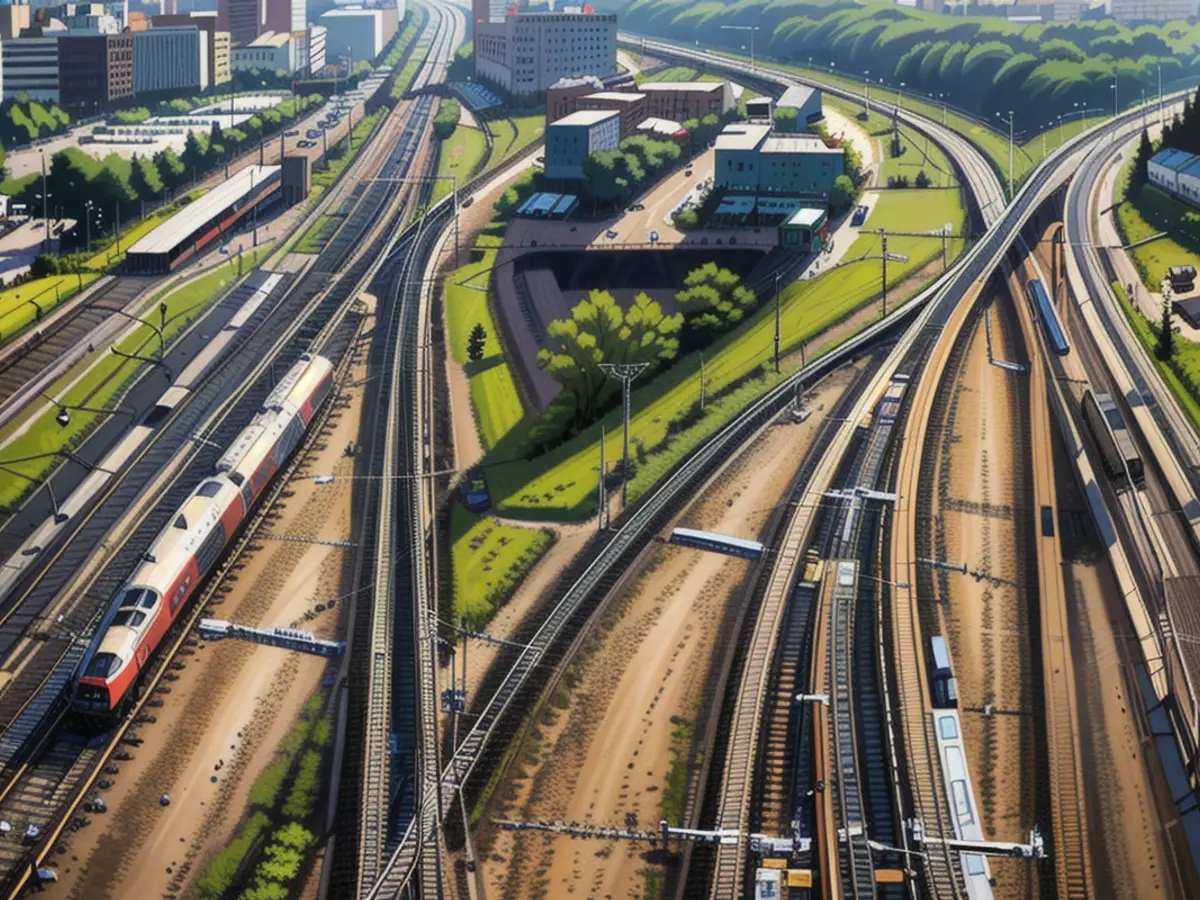Financial Commitments or Resource Allocation - Parliamentarian criticizes Germany's transportation plans.
An SPD member of the German Parliament, Martin Krober from Magdeburg, criticized the Saxony-Anhalt government for misplacing their focus in transportation policy. The matter at hand is the "regionalization funds," which the state's ruling coalition of CDU, SPD, and FDP receives from the federal government. These funds, according to Krober, should be used for state responsibilities rather than financing a regional task with federal funds. "By what authority does the state pay for a state-level task with federal funds?" Krober questioned. As a member of the Transport Committee in the Bundestag, he's concerned about the ways in which the state is allocating its resources.
The Ministry of Infrastructure revealed that Saxony-Anhalt has approximately €505 million in regionalization funds. About 295 million euros from this amount were allocated to train acquisitions, set to take place in 2023. Districts and free cities receive a €31 million annual allocation from the government for financing student travel pass discounts for vocational transport. A spokesperson for Minister Lydia Hüskens (FDP) defended the allocation process, stating, "Using regionalization funds for vocational transport is allowed."
However, Krober disagrees. He asserts that the money should be used for more pressing needs. For example, he cites the state's lack of investment in increasing rail transport capacities. Instead, the state spends more on vocational transport financing.
The politician from the SPD urges the expansion of rail transport in Saxony-Anhalt. "A railway isn't a street. It doesn't have three lanes where you can overtake if the vehicle in front of you is driving slowly," Krober said. "But we still need to expand freight transport. If we face a driver shortage and we really don't have sufficient drivers, then we have to consider alternative ways of transporting goods from Point A to Point B," he added. "A train substitute, which is usually a freight train with 150 trucks, seems like the least bad option for now."
Read also:
- Tough return to normality in snow and ice
- Fewer unauthorized entries: Domino effect through controls
- Trial against BND employee from mid-December
- Xhaka leads Leverkusen to triumph in cup tournament, scoring two goals.
- Martin Kröber, a Member of the Bundestag from the SPD in Magdeburg, has raised concerns about the Saxony-Anhalt government's transportation plans, questioning their use of federal funds for state-level tasks.
- Krober, a member of the Transport Committee in the Bundestag, is particularly critical of the state's allocation of regionalization funds, which are intended for state responsibilities.
- The SPD member emphasized the need for investment in increasing rail transport capacities in Saxony-Anhalt, citing the insufficient use of railways for freight transport and the potential for a driver shortage.
- The German Press Agency reported that Saxony-Anhalt has approximately €505 million in regionalization funds, with 295 million euros allocated towards train acquisitions in 2023.
- Districts and free cities in Saxony-Anhalt also receive an annual allocation of €31 million from the government for financing student travel pass discounts for vocational transport.
- In response to Krober's criticisms, a spokesperson for Minister Lydia Hüskens (FDP) defended the allocation process, stating that using regionalization funds for vocational transport is allowed.
- Amidst this debate, the Saxony-Anhalt state government faces calls for a shift in investment priorities, with Krober advocating for a focus on improving rail transport capacities and addressing potential logistical challenges.
Source: www.stern.de








